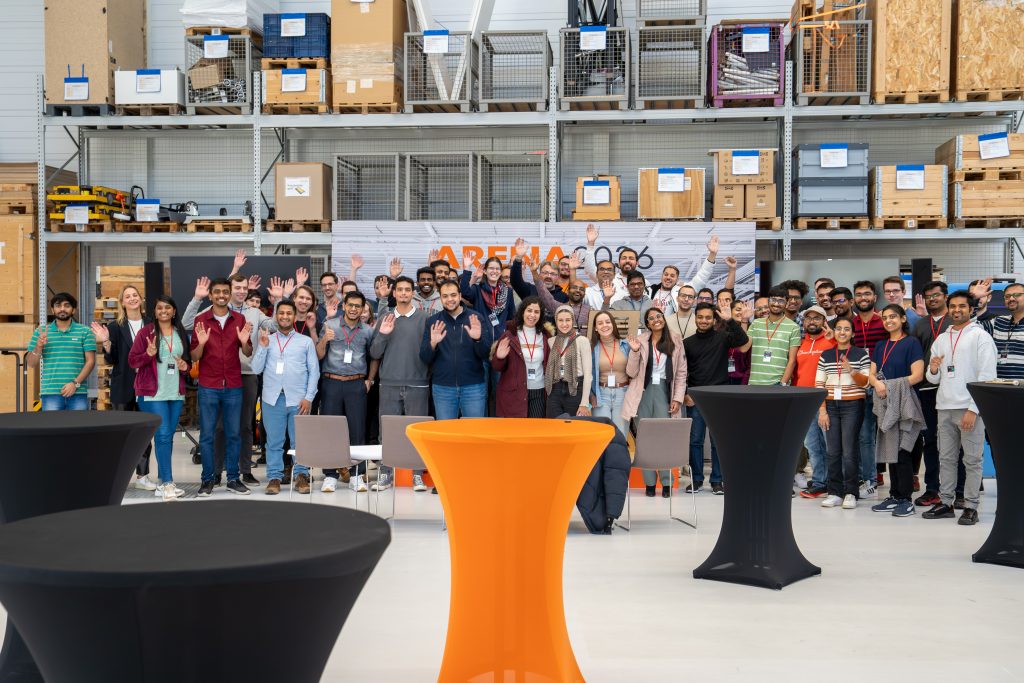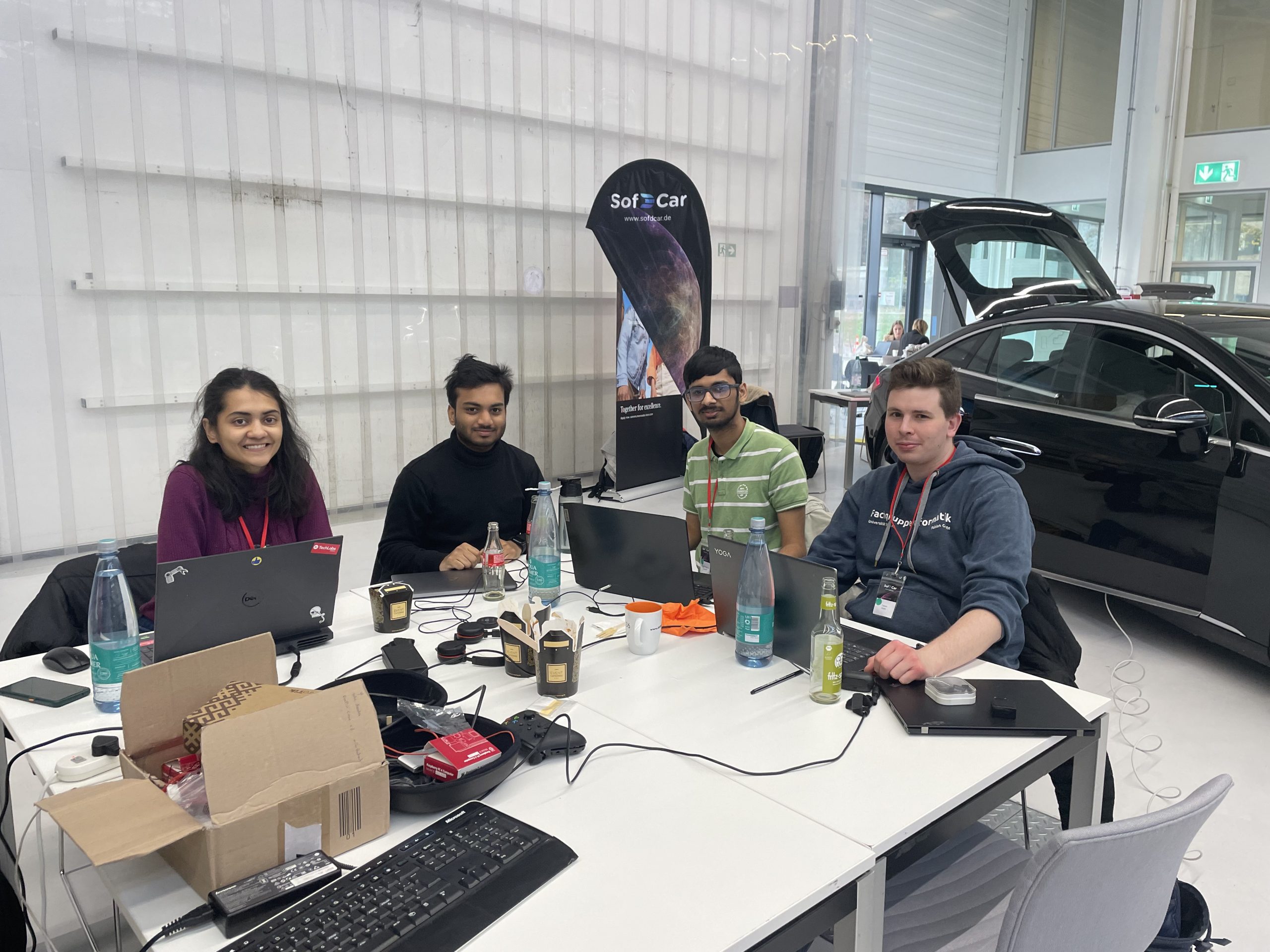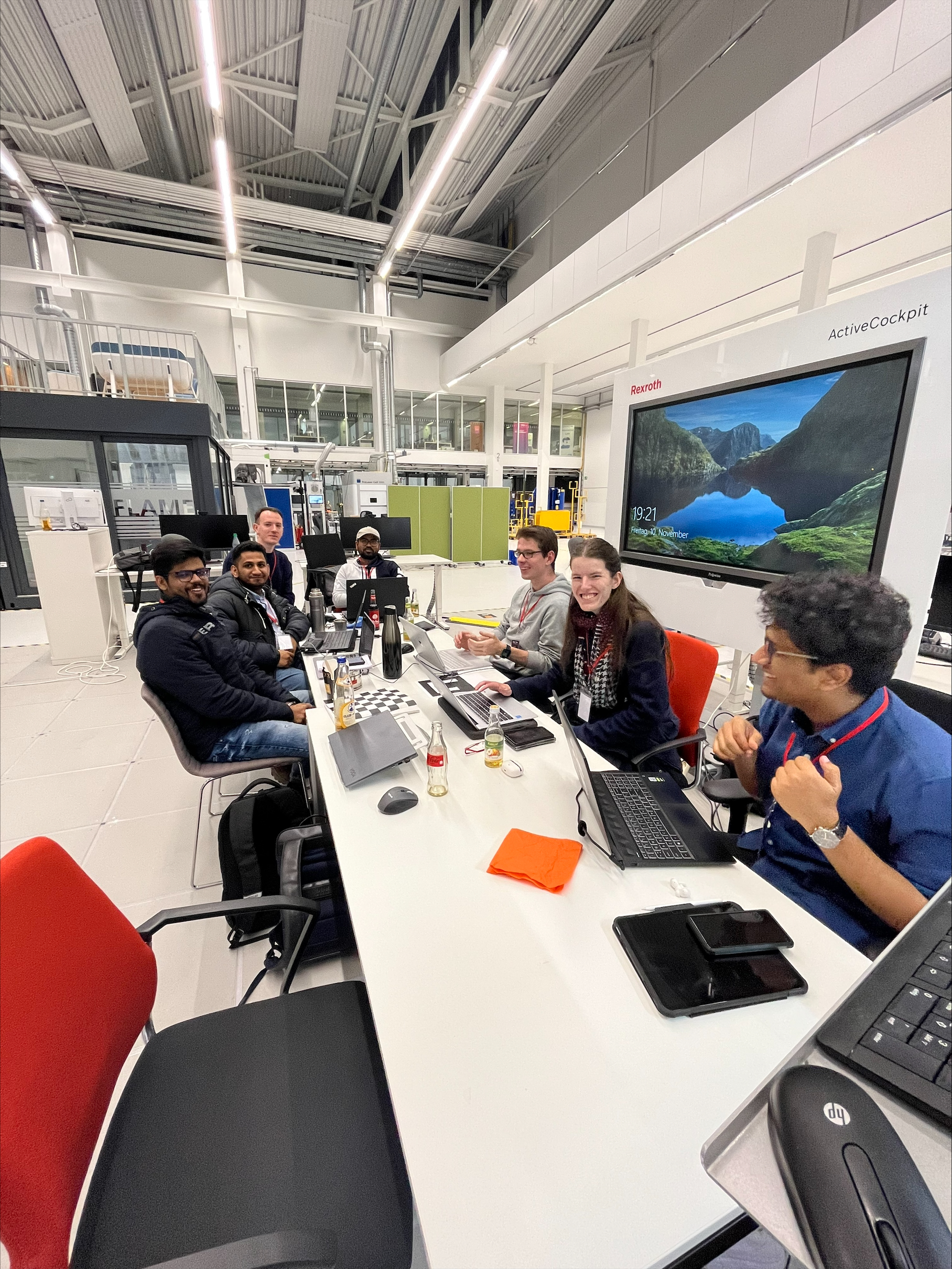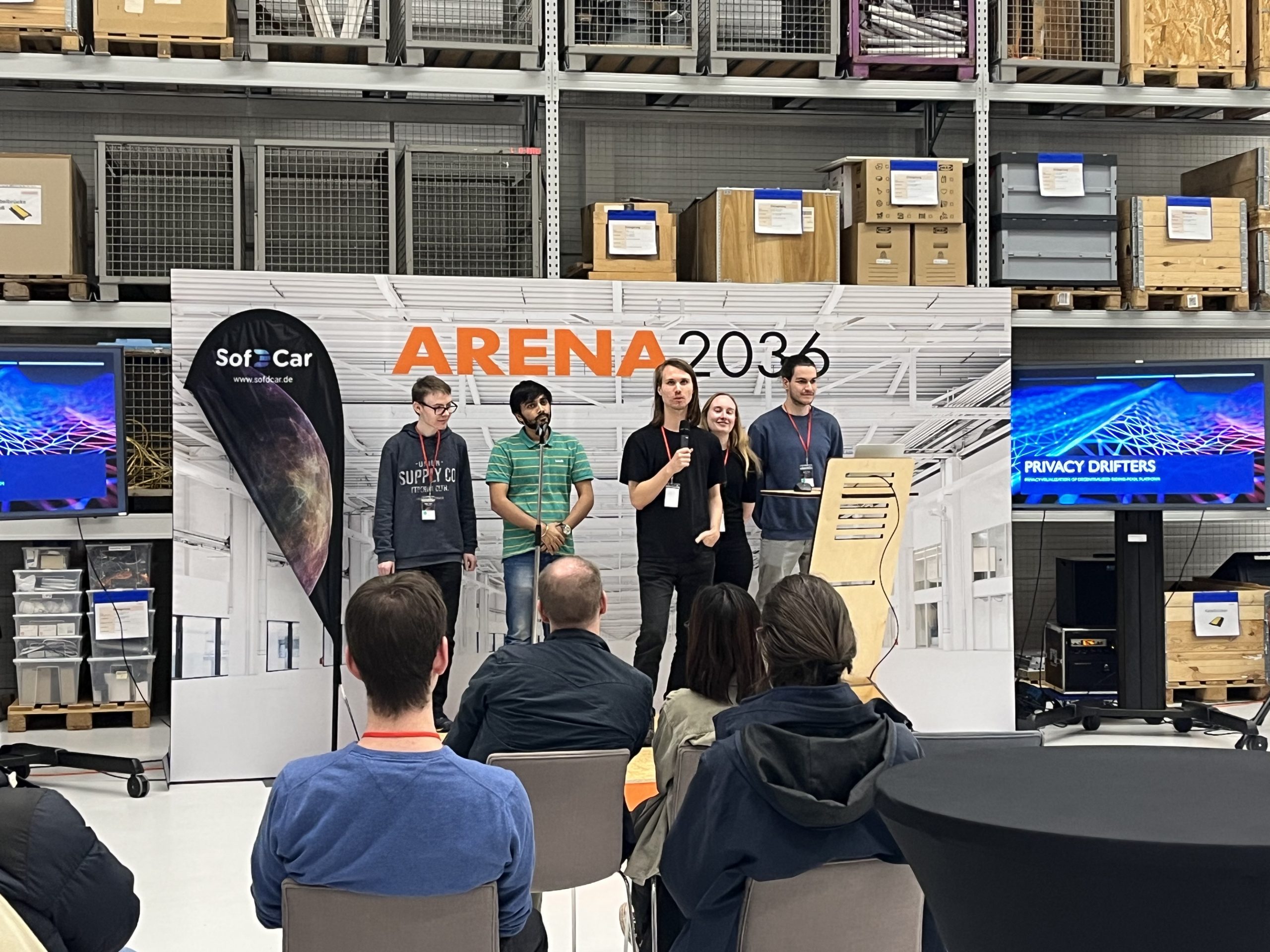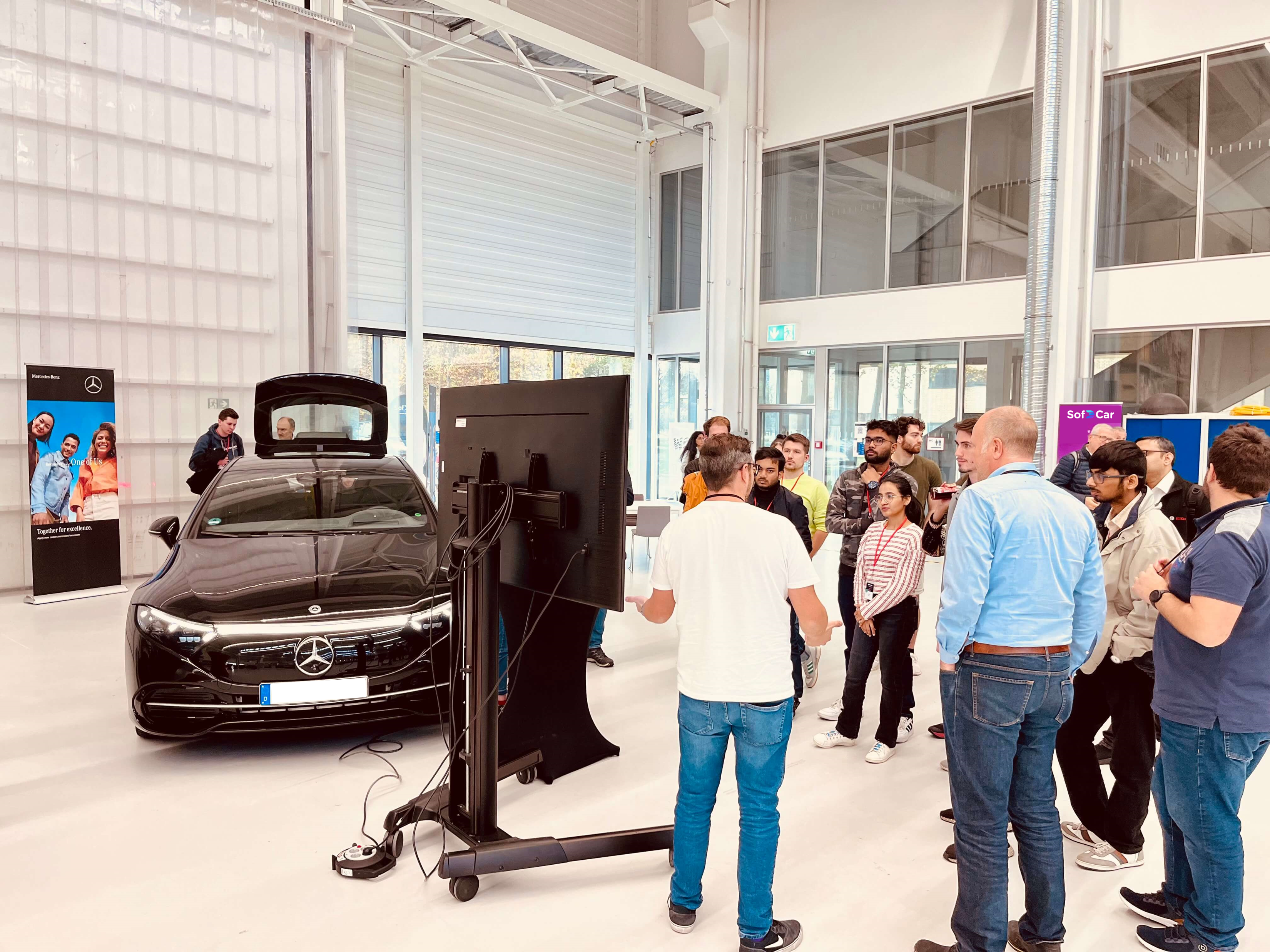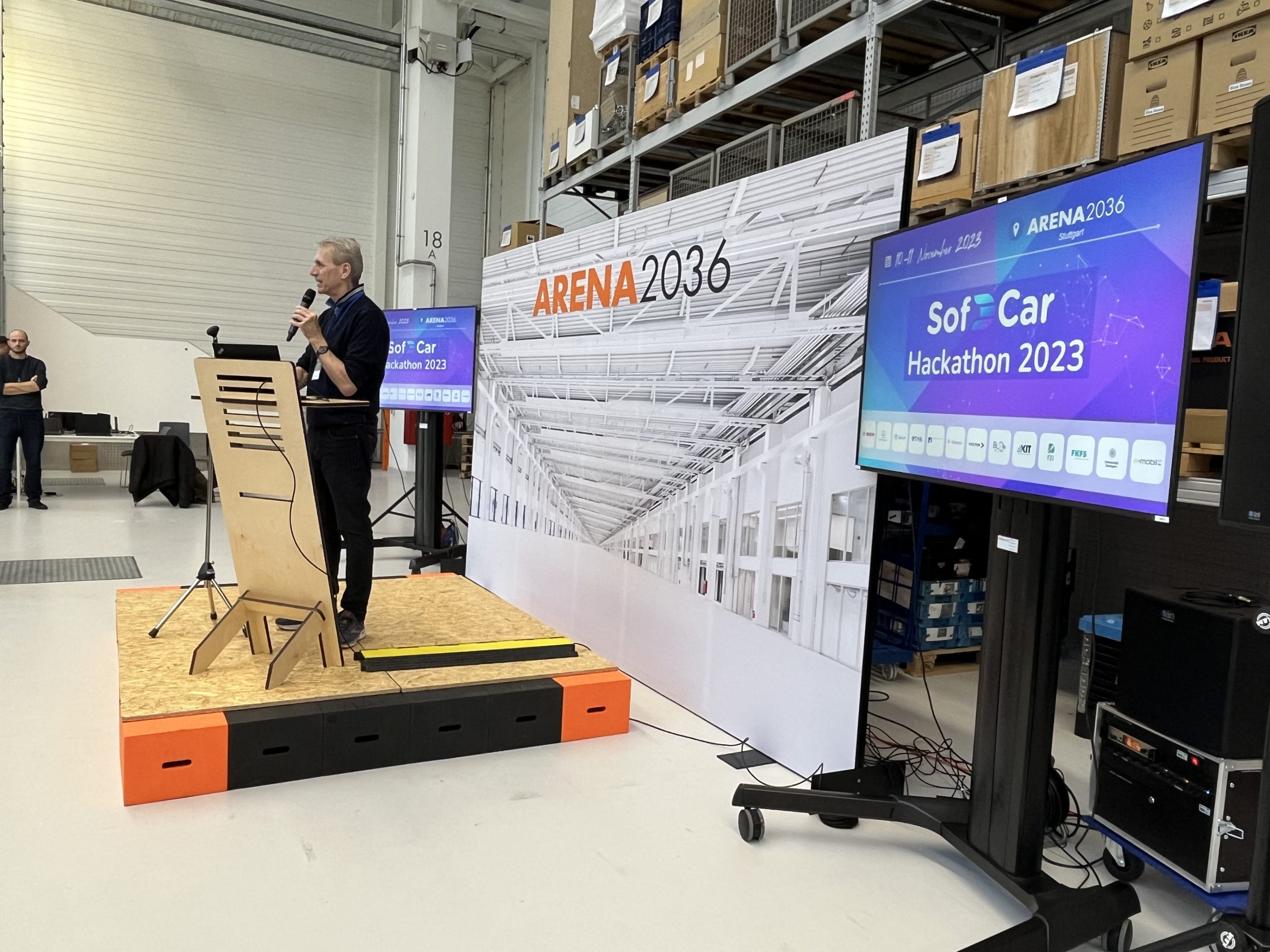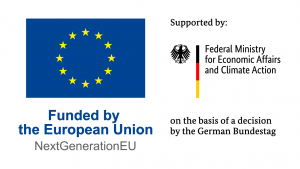The 2nd Hackathon of the SofDCar Consortium was a resounding success. Approximately 50 students and 40 experts from academia and industry dedicated two days to solving questions and challenges surrounding the software-defined vehicle of the future within the SofDCar Hackathon II.
In five different hack challenges, participants, working together in nine groups, showcased their skills. With the support of experienced hack coaches from SofDCar partners, numerous innovative and creative solutions were developed in record time.
Participants expanded their skills in the following hack challenges:
§ Intelligent control of seat massage via AAOS
§ Advanced welcome scenario
§ Path finding and autonomous parking on intelligent floor
§ Over-the-air update strategies via 5G
§ Privacy visualization of a decentralized ride-pooling platform
As the highlight of the Hackathon, teams presented their solutions in highly creative pitches, each evaluated by a specialized jury based on the results and approaches taken.
Three groups distinguished themselves through perfect teamwork, innovative approaches, and creative solutions, earning them a shared spot on the podium. We would like to congratulate all participating teams once again and express our gratitude for their involvement!
